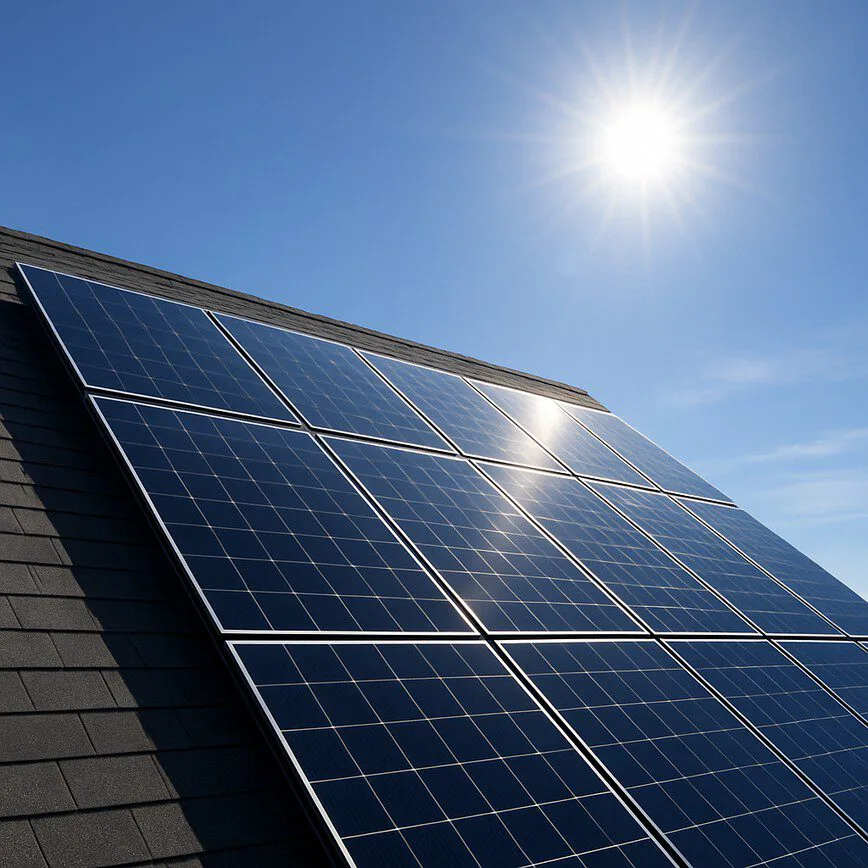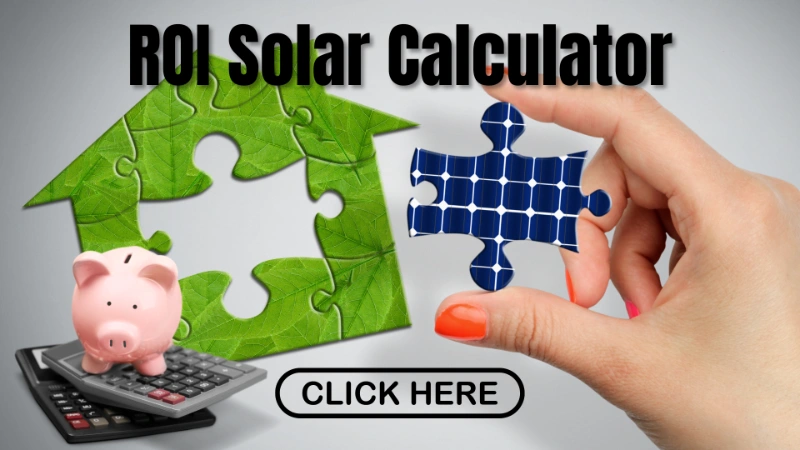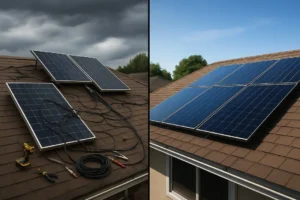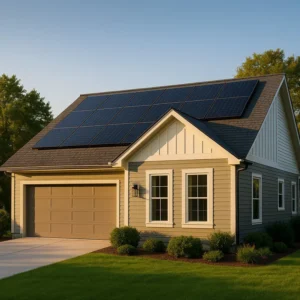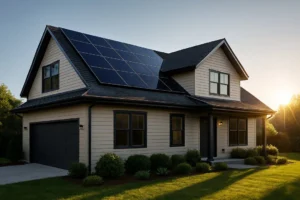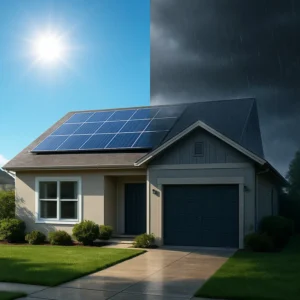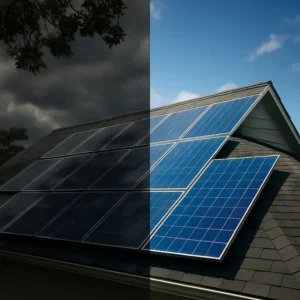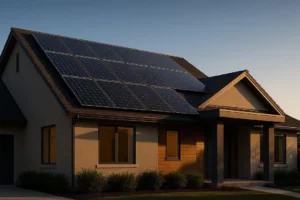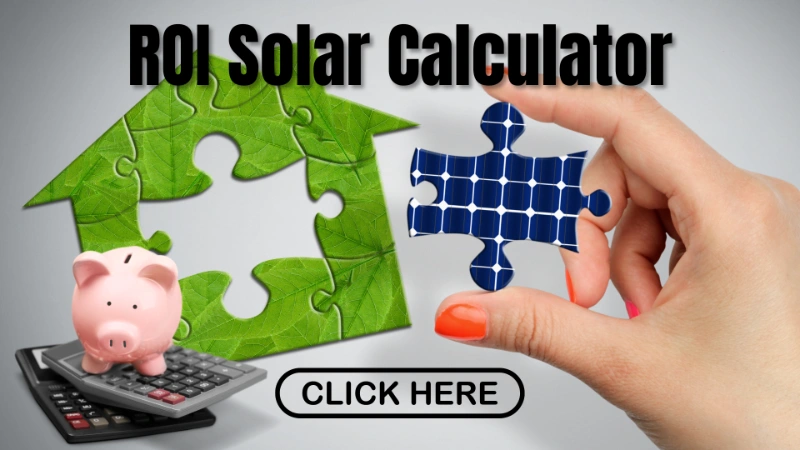Investing in solar energy is a fantastic step towards energy independence and lower bills. But how do you ensure you’re getting the absolute most out of every single panel on your roof?
Table of Contents
The answer lies in understanding the Key factors that affect your solar panel’s efficiency. This guide offers a clear-cut explanation of solar panel efficiency, breaking down the top 5 factors that can impact your system’s performance so you can make confident, informed decisions. Let’s dive into what affects solar panel efficiency.
Factor 1: The Power of Sunlight (Irradiance)
First up is the most obvious factor: sunlight. In technical terms, this is called ‘solar irradiance’—it’s the amount of solar energy that hits a specific area. Simply put, the more direct, intense sunlight your panels receive, the more electricity they will generate.
This is why location, time of day, and even the season play a huge role. A panel in a sunny region will naturally have a higher output than one in a cloudier area. The key takeaway is maximizing your home’s unique sun exposure through smart placement and orientation during installation.
Factor 2: The Surprising Impact of Heat
Now for a factor that surprises many people: temperature. You might think ‘hotter is better,’ but solar panels actually lose efficiency when they get too hot.
Solar panels are tested at a standard temperature of about 77 degrees Fahrenheit (25°C). For every degree above that, their output can drop slightly. Why? Extreme heat makes the electrons in the panel too agitated, causing them to lose energy as heat rather than converting it into electricity.
One of the best solar panel tips to combat this is ensuring your installer leaves enough space between the panels and your roof for air to flow, which helps cool them down naturally.
Factor 3: The Shadow Problem
Next, let’s talk about shading. Even a small, persistent shadow can have a surprisingly large negative effect on your entire system’s output.
Think of your panels like a string of old holiday lights—if one goes out, the whole string can be affected. A shadow from a tree branch, a chimney, or even a vent pipe can limit the production of not just one panel, but all the panels connected to it in that string. A thorough site assessment before installation is critical to avoid these energy drains.
Factor 4: Keeping Your Panels Clean and Clear
This one is straightforward but often overlooked: maintenance. Over time, your panels will accumulate dust, dirt, pollen, bird droppings, or even snow. Anything that blocks sunlight from reaching the solar cells will reduce their efficiency.
Studies have shown that dirty panels can lose anywhere from 5% to over 20% of their efficiency in some areas. A simple cleaning once or twice a year can often be enough to restore their performance. This is one of the easiest ways to improve solar panel efficiency on your own.
Factor 5: Beyond the Panel – Your System’s Components
Finally, it’s crucial to remember that a panel’s efficiency is only one part of the equation. Your overall system efficiency depends heavily on its other core components, especially the inverter and any battery storage.
The inverter converts the DC electricity from your panels into the AC electricity your home uses, and a battery stores it for later. Each of these components has its own efficiency rating. Choosing high-quality, well-matched equipment is essential to avoid creating a bottleneck that wastes the precious energy your panels are generating.
Understanding how these parts work together is key. You can explore our guides on essential solar products to learn more about how inverters and batteries impact your system.
How to Improve Your Solar Panel Efficiency: A Quick Recap
So, let’s quickly recap what affects solar panel efficiency:
- Sunlight: Maximize exposure with smart placement.
- Temperature: Ensure proper airflow to keep panels cool.
- Shading: Avoid shadows from trees and structures.
- Maintenance: Keep your panels clean.
- System Components: Choose high-quality inverters and batteries.
Navigating these factors is exactly what we specialize in at RenewGenius. We focus on residential solar solutions and provide the insights you need to build the most effective system for your home.
Want to see how these factors could impact your potential savings? Head over to our website and use our ROI calculator to get a personalized estimate. It’s a great tool to help you make your decision with confidence.

